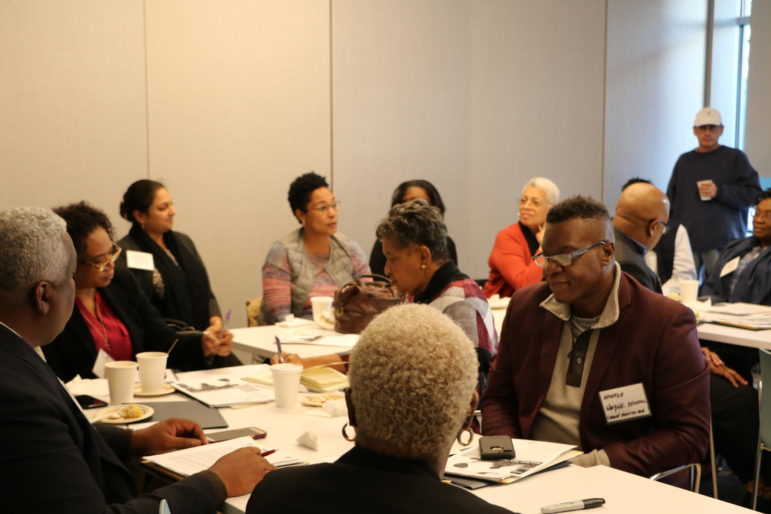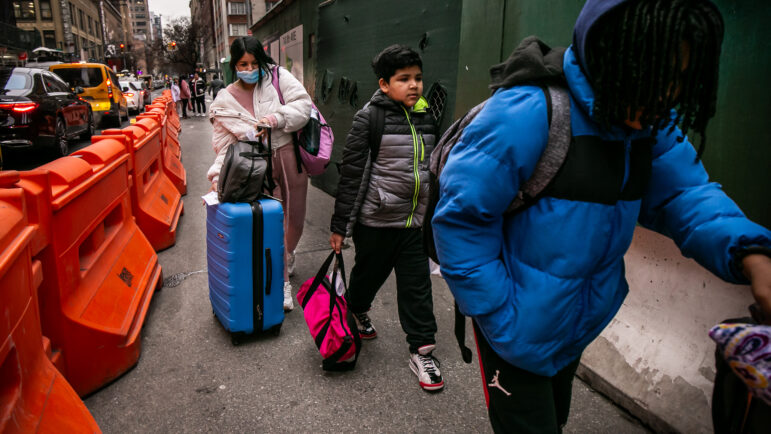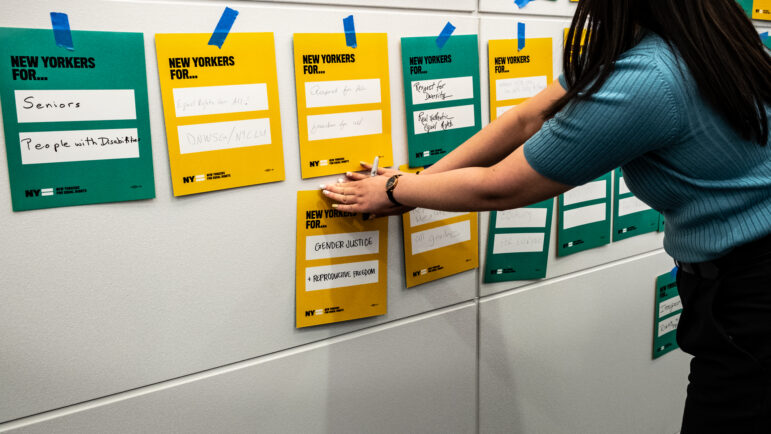
ICL
Members of the clergy met recently in East New York to discuss partnerships that can address their communities’ mental-health needs.
Seems like everywhere you turn, people are talking about how bad things are. Whether it’s the country, the climate or some catastrophic event, people are in despair, despondent, depressed.
The truth is, that in distressed communities around the country — particularly in low-income, mostly black or brown communities — feelings of desperation are not brought on by tragic events that draw national attention, but rather by the day-to-day realities of endless poverty. And it’s not the temporary reaction people have to the evening news; it is a constant struggle that can erode or even ruin the lives of our young and old alike.
Crime, lack of employment and educational opportunities, substandard housing and other factors have a very real and severe impact on our people’s mental health. We–and that includes faith leaders like me–need to talk about it more and we need to do more to help our brothers and sisters.
We are challenged on two fronts.
First, in many communities – especially communities of color — there is a stigma associated with discussing mental health. Too often people in our communities don’t feel comfortable discussing their mental health problems and they are even less likely to seek help, especially from people perceived to be “outsiders.”.
Second, there has been a serious lack of access to non-emergency mental health services. Brownsville residents, for example, have the second highest rate of psychiatric hospitalizations in the city and its neighbors in East New York have the 10th highest. Both neighborhoods have been health deserts.
Truth is, faith leaders like me were part of the problem too. Too many, for too long, saw mental illness as a spiritual weakness, a failure of faith. Thankfully, that’s begun to change.
If a congregant came to me with a physical ailment, I wouldn’t tell them the only thing they needed was prayer – I’d advise them to seek medical help. Today, faith leaders are increasingly “first responders” for mental health problems, listening to our congregants talk about their own stories or discussing with colleagues the struggles of family members or loved ones. And we are increasingly encouraging them to get help; we are getting better at seeing often invisible mental health problem the same way we would a physical illness.
Religion plays a crucial role in communities of color like East New York. Residents don’t just turn to the church for comfort and strength, but for help dealing with day-to-day issues. When our congregants are suffering with mental health issues, they need to feel comfortable coming to the clergy for help.
But we faith leaders can’t do it alone either. Many of us have neither the training nor the resources to help.
That’s changing too.
Get the best of City Limits news in your inbox.
Select any of our free weekly newsletters and stay informed on the latest policy-focused, independent news.
Now we’re getting trained by the New York City Department of Health and Mental Hygiene and by ICL, a local nonprofit that recently opened a new, much-needed health hub in the neighborhood. In addition to their extensive mental health care, ICL brings together mental health with physical health care in the hub through its medical partner, Community Healthcare Network. They also offer connections to other resources that address the housing, food scarcity, unemployment and more that cause distress to so many of our neighbors.
That’s exactly what we need: a trusted partner in the community that can provide culturally competent, mental health services. In East New York, Cypress Hills, Brownsville and beyond, that partner is ICL. All communities, particularly low-income communities of color plagued by so many problems, need this kind of partner.
Only together – a partnership between clergy, the community, and competent and caring mental health and health providers, will we get our people well.
Bishop Steve Belgrove is the Pastor at His Majesty International Fellowship in Brownsville Brooklyn; David Woodlock is the CEO of ICL, a New York City-based nonprofit.









3 thoughts on “Opinion: How Underserved NYC Neighborhoods Can Close Their Mental-Healthcare Gaps”
You are missing a word:
First, in many communities – especially communities of color — there is a stigma associated with discussing mental health.
The word you are missing is “taught”, we are taught there is a stigma.It is so broadly taught, from so many directions, we accept it as a truth. See rape/stigma for an earlier lesson.
Harold A Maio
It’s great
Underserved neighborhoods often suffer from a lack of mental health resources. 2018 estimates indicate that 25% of NYC residents live in poverty while another 24% have low levels of education. These factors result in a high rate of stress and depression, which can lead to poor health outcomes such as anxiety and substance abuse.